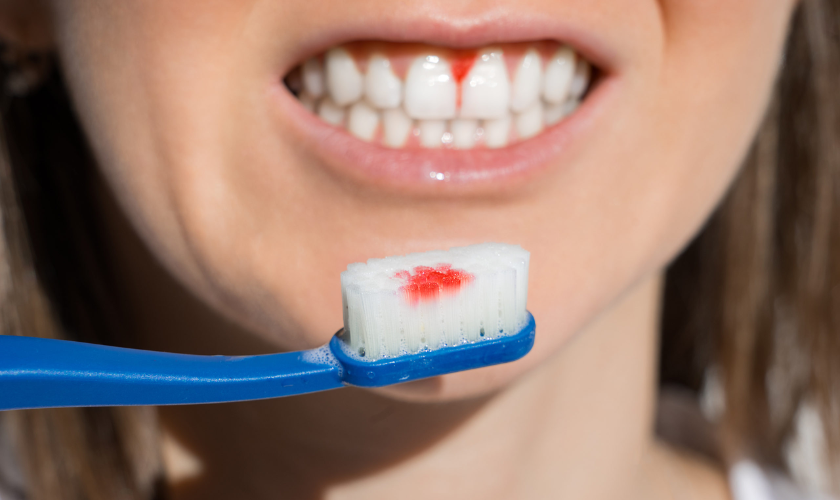Kentwood, MI

Why Are My Gums Bleeding in Cold Weather? Understanding Sensitivity

Winter brings a picturesque landscape adorned with snowflakes and a crisp chill in the air. However, for some, it also brings an unexpected concern – bleeding gums. If you’ve ever wondered why your gums seem more prone to bleeding during cold weather, you’re not alone. This article aims to unravel the mystery behind this phenomenon and delve into the intricacies of dental sensitivity in winter.
The Winter Gum Woes: Unmasking the Culprits
1. Dry Air and Dehydration
One of the primary reasons for bleeding gums in cold weather is the dry air that winter brings. Cold air tends to be dry, and when combined with indoor heating systems, it can lead to reduced humidity levels. This dryness can dehydrate your gums, making them more susceptible to irritation and bleeding.
2. Temperature Extremes and Tooth Sensitivity
Cold weather can exacerbate tooth sensitivity, and if you already have sensitive teeth, this can extend to your gums as well. The sudden exposure to extreme temperatures, such as biting into something cold or breathing in icy air, can trigger discomfort and bleeding in the gums.
3. Vitamin D Deficiency
During winter, people often spend less time outdoors, leading to a potential decrease in vitamin D levels. Vitamin D is crucial for oral health as it helps the body absorb calcium, which is essential for maintaining strong teeth and gums. A deficiency in this vitamin can contribute to gum problems, including bleeding.
Shielding Your Gums in Winter
1. Stay Hydrated
Combat the dry winter air by staying well-hydrated. Drink plenty of water throughout the day to keep your gums moisturized and promote overall oral health. Consider using a humidifier in your home to add moisture to the air.
2. Protective Oral Care Routine
Switch to a toothpaste designed for sensitive teeth to alleviate discomfort. Additionally, using a soft-bristled toothbrush can reduce the risk of gum irritation. Maintain a consistent oral care routine, including regular flossing, to keep your gums healthy.
3. Boost Your Vitamin D Intake
To address the potential vitamin D deficiency, incorporate vitamin D-rich foods into your diet, such as fatty fish, fortified dairy products, and egg yolks. If needed, consult with your healthcare provider about vitamin D supplements.
Embrace Winter with a Confident Smile
Winter shouldn’t be a season of worry for your oral health. By understanding the factors contributing to bleeding gums in cold weather and implementing proactive measures, you can ensure a confident smile even on the chilliest days. Embrace the beauty of winter without compromising your dental well-being.
FAQs: Clearing Your Doubts
Q1: Is it normal for gums to bleed in cold weather?
A: While occasional gum bleeding in cold weather is not uncommon, persistent bleeding may indicate an underlying issue. Consult with your dentist to rule out any serious concerns and discuss preventive measures.
Q2: Can winter weather cause tooth sensitivity?
A: Yes, cold weather can exacerbate tooth sensitivity. If you experience discomfort, consider using toothpaste for sensitive teeth and adopting practices to protect against temperature extremes.
Q3: How can I protect my gums during winter?
A: Stay hydrated, maintain good oral hygiene, and address potential vitamin D deficiency. These measures can help keep your gums healthy and reduce the risk of bleeding in cold weather.



